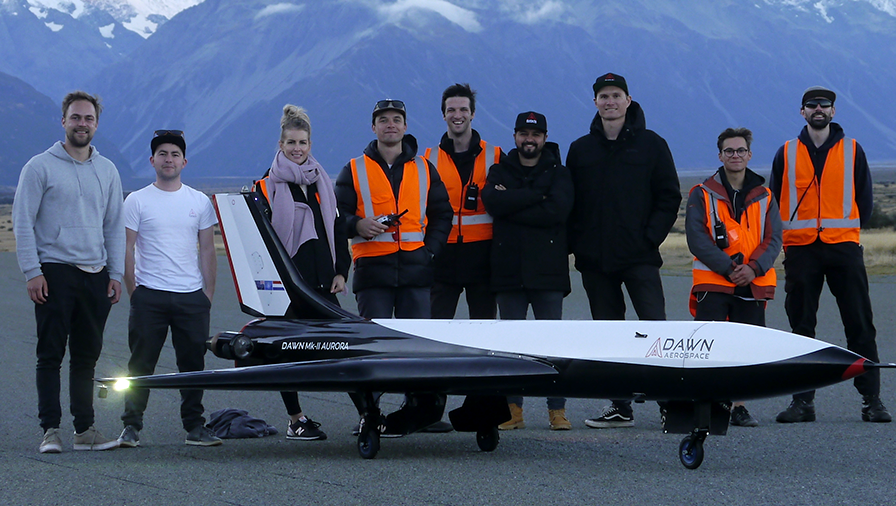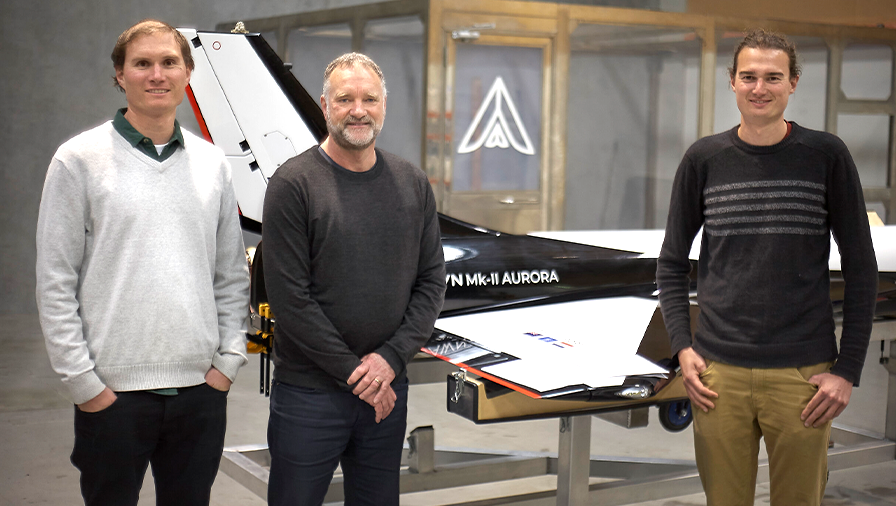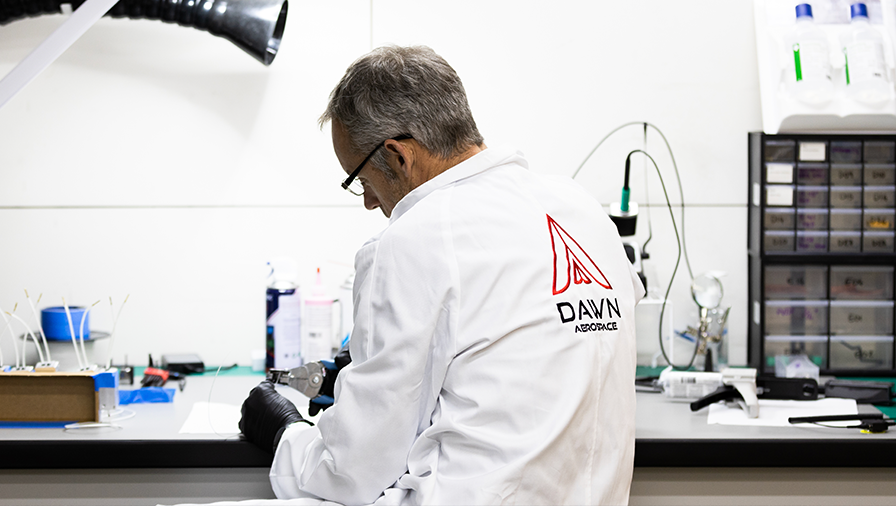Why you would raise $30m when you don’t really need it
Space transportation company Dawn Aerospace has launched a Series A capital raise.
Dawn Aerospace.
Space transportation company Dawn Aerospace has launched a Series A capital raise.
Dawn Aerospace.
Venture-backed space transportation company Dawn Aerospace is raising $30 million in a Series A capital raise although its co-founders say they don’t need the money.
The fast-growing startup, based in New Zealand, the Netherlands and the United States, is already making good revenue from selling its green propulsion systems that help small satellites manoeuvre in space. It made close to $5m in revenue in 2021 and has projected nearly $20m for the 2022 financial year.
But it is also in the throes of spending more than $100m developing sub-orbital and orbital rocket-powered planes capable of multiple commercial flights in a day.
Chief executive Stefan Powell said there had already been around $18m in soft commitments (not yet signed) for the current capital round and it would consider oversubscription depending on demand.
“We don’t really need the money because we have a very viable business, which is almost a weird thing to say for such a young aerospace startup. Without raising money we would still expect to grow – probably get to around 100 people by the end of the year and we’re about 70 now, but we’re raising money because we just see that there’s so much opportunity out there. The contracts that we’re executing on now are for customers that are doing real things.”
Powell said the real opportunity for Dawn was that a lot more business was to be done in geostationary orbits – even looking at some “quite exotic stuff” such as lunar missions, so there is strong demand for green propulsion and sustainable transportation methods.
“It’s about developing that next-generation technology. That [new capital] brings us to the technology readiness level that these customers will jump on board as well with repeating what we’ve done in low Earth orbit but now we’re going out to the larger orbit.”

The backers
The company was founded in 2016 by Kiwi brothers Stefan and James Powell, Jereon Wink of the Netherlands and Germans Tobias Knop and Robert Werner. It was spun out of Stefan Powell’s master’s thesis, with one of his co-founders, into satellite propulsion systems.
When New Zealand’s largest tech investment firm Movac and other investors put further investment into the company a year ago, it was in the form of convertible notes for an undisclosed amount that convert to equity at a discount in the Series A. At the time Movac said it would like to lead the Series A.
Movac partner Mark Stuart told NBR it was still interested in leading the round but that would depend on its valuation work underway and the terms the company settles on.
“Obviously we’ve become a lot more familiar with the team and the company since we first got involved and we think they’re an impressive bunch, we’re very positive about them.”
But he warned the market momentum, including for space sector stocks, was down at the moment. That could mean investors pull back on their equations somewhat.
Kiwi-founded Rocket Lab, listed on the Nasdaq, has seen its share price plunge in recent months to the point where market analysts are now rating it a good buy. The Promus Ventures New Space Index, which includes Rocket Lab as a new space company, shows share prices in that part of the sector had dropped 12.4% in the quarter to early May compared to just negative 4.3% for the Nasdaq as a whole and 3.2% for the S&P 500.
“We believe space is a rapidly growing sector and our conviction on that has not changed,” Stuart said, and his company was looking beyond the next year or two of market conditions to where the space industry was headed longer term.
Dawn had previously raised $3.5m in seed money in 2018 from Kiwi, American and Dutch investors. That investment round was led by Icehouse Ventures’ Tuhua Fund and included Derek Handley’s Aera Capital VC and Erik Swan, the found of Nasdaq-listed software company Splunk.

Recruitment push
With Dawn’s growth rate, it is hiring one to two new staff a week. It was listed this week in the Matchstiq Top 100 2022, a list of high-growth startups and tech companies to work for in New Zealand. Nominated companies have to be NZ-owned and operated and be building an innovative product that is disrupting a global industry.
Powell said its inclusion on the list reflected its commitment to being a great place for people to work and should help with recruitment in the midst of a country-wide labour shortage.
“Recruitment is always a problem. If it’s not a problem then maybe your standards aren’t high enough. But I think we also benefit from being in a bit of a hyped-up market – in some ways, people just love space.”
The fact Dawn’s mission was about sustainability and making space flight affordable and commonplace helped attract people who are also purpose-driven and passionate about changing the world, he said.
“We’re not just doing this for fun. If we wanted to make a whole bunch of money, I wouldn’t have started an aerospace company – there are easier ways to make money but this is about changing the world for the better and that really speaks to people.”
‘I think we also benefit from being in a bit of a hyped-up market – in some ways, people just love space.’
Selling engines to Toyota
Dawn Aerospace also announced this week it had been selected by Blue Canyon Technologies to provide turnkey propulsion systems for the X-SAT Saturn satellite bus. Dawn will supply thrusters, tanks, control electronics and full-service support in logistics and propellant loading for the ESPA Grande-class satellite and Powell said it gave it a sales channel into the US which is a key market for the company.
“It’s kind of like selling engines to Toyota. It’s a big deal in the sense that we’re now selling to somebody who builds standard satellites for many, many other customers so this is a huge sales channel for us and a huge deal to be working towards being a standard product in their product. That’s a really deep level of integration into the business.”
Blue Canyon Technologies has supported missions for the US Air Force, NASA and the Defense Advanced Research Projects Agency and also provided the attitude control systems for the first interplanetary CubeSats, which successfully travelled to Mars.
The money raised by Dawn will be used to double staff numbers and develop next-generation technology for both its space propulsion systems and space planes. It wants to begin work on the Mk-III plane which will deliver satellites into orbit using an expendable second stage which will burn up in the atmosphere after deploying the satellite. Even with that loss, it is intended that 94% of the craft will be reusable.
At this stage, the company is still primarily testing the Mk-II plane in New Zealand where it has Civil Aviation Authority approval to fly the spaceplane from a conventional airport without exclusive airspace restrictions. It has signed a memorandum of understanding with Colorado Air and Space Port but needs Federal Aviation Administration approval for test flights there.
Powell said the company was getting close to putting a rocket engine into the remote-piloted vehicle this year, which would be “quite a step change”.
While the Mk-III was about scaling up the whole idea, the Mk-II will be the first step in flying to space, over 100 km altitude, twice in one day but not fly fast enough to get to orbit.
“That will be a real Wright Brothers moment in its own right, but it’s not getting to orbit. The Mk-III will be the first thing that will be able to get something into orbit although the vehicle itself won’t get into orbit, it will be able to release something that will.”

The timeline
When asked the timeline for going commercial on these flights, Powell said it could be sooner rather than later for the Mk-II – within the next couple of years.
“We’re getting to the stage now where it’s really believable that we’re going to get there and customers can start designing payloads to actually use it. It’s still very much a technology demonstration platform for us, but we’re very much open to customers when they come along and we think there are quite a few interesting use cases there. “
Deployment on the Mk-III will depend on raising sufficient money and scaling the business, he said.
“This is a very large undertaking, it’s going to be well over $100m of expenditure to get the Mk-III to fly so we’re certainly not there yet. It’s a few years yet.”
Launch costs will be key.
The Powell brothers say their plan is not just about building space planes but about being a network or platform for space transportation.
Right now space transportation is quite piecemeal with people paying to get to space essentially like a taxi ride, and you have your own propulsion systems onboard and you use that until you run out of gas and have to re-enter the atmosphere, Powell said.
He used a car analogy: people buy a car that has a single tank of petrol and use it a few times to get to work until the petrol runs out and you have to replace it.
“It works, but it’s not great. Going to a network basically means you have a way of resupplying these satellites, refuelling them, and providing other services to them when they break down. You suddenly realise, ‘Wow, there’s so much more you can do with this vehicle’. Now it’s not just restricted to a single tank of gas, you don’t need to launch so much into interspace to start with because you’re actually getting so much more use out of the stuff that’s out there.”